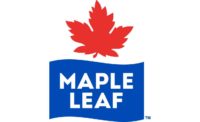Maple Leaf Foods Inc. (TSX: MFI), a North American producer of high-quality, sustainable protein, announced that by the end of 2021, it will complete transitioning all breeding sows in company-owned barns to its unique, industry-leading Advanced Open Sow Housing System. This world-class system provides optimized, open housing during pregnancy that allows sows to roam, rest, feed, and socialize freely.
This shift in sow housing represents another key milestone in the company’s commitment to better care through advanced animal welfare.
In 2014, Canada’s pork industry committed to ending gestation crate use by 2024. As one of North America’s protein producers, Maple Leaf Foods signed this agreement but set a more ambitious timeline to convert all its owned Maple Leaf Agri-Farms sow barns to a new Advanced Open Sow Housing System by the end of 2021. Maple Leaf Foods’ company-owned barns produce approximately 40 percent of the pigs that the company uses annually to produce its branded pork products.
Gestation crates are individual stalls in which pregnant pigs are confined during the 78-day gestation period to ensure their safety, but concerns have been raised about their impact on welfare and natural behavior. A 2013 survey conducted by Humane Society International–Canada revealed that 84 per cent of Canadians supported elimination of gestation crates.
As part of the company’s commitment to world-class animal care, Maple Leaf Foods’ animal care team studied housing and feeding systems around the world and combined the best practices it observed into the company’s unique Advanced Open Sow Housing. Maple Leaf Foods’ system differs from other open sow housing systems by not just opening or removing gestation crates, but rather by creating housing areas with various spaces that support sows’ desires to choose when to play, to socialize, to eat, and to rest. The unique open system also helps Maple Leaf Foods Team Members to observe the sows more readily as they move about, monitor their health more accurately, and provide optimal care.
The Maple Leaf Foods Advanced Open Sow Housing System offers additional comforts, including:
- Electronic sow feeders
- Cool water misters during the hot summer months
- Bright LED lighting
- Windows for natural light
- Night lights for those sows who choose to feed at night.
“Ensuring the animals in our care experience the best possible environment at Maple Leaf Foods, is the right thing to do and an essential part of our sustainability commitment,” said Michael McCain, president and CEO. “Our progress in eliminating gestation crates in our sow barns across Canada is a significant milestone as we proudly lead the industry towards a more compassionate approach to animal welfare.”
Maple Leaf Foods has a robust and mature sustainability program in place, focused on delivering Better Food, Better Care, Better Communities, and a Better Planet. Better Care includes the treatment of animals in accordance with the Five Freedoms and Five Domains, which are widely accepted principles for ensuring optimal physical and mental welfare. The company’s Advanced Open Sow Housing model is one of the world’s most innovative and has been praised by leading experts in pig welfare. As a result of the housing transition, 96 percent of Greenfield Natural Meat Co. pork products will be sourced from open-housed sows by the end of 2021 and that number is expected to rise in 2022 as the availability of open-housed sows increases. Labels are included on Greenfield Natural Meat Co. products to confirm when pork is sourced from pigs produced without gestation crates.
To learn more about Maple Leaf Foods' commitment to animal care, visit: https://www.mapleleaffoods.com/sustainability/better-care/commitment-to-animal-care/
To learn more about sustainability at Maple Leaf Foods, visit: mapleleaffoods.com/sustainability
To learn more about Maple Leaf Foods brands, visit: mapleleaffoods.com/our-brands.
Source: Maple Leaf Foods



